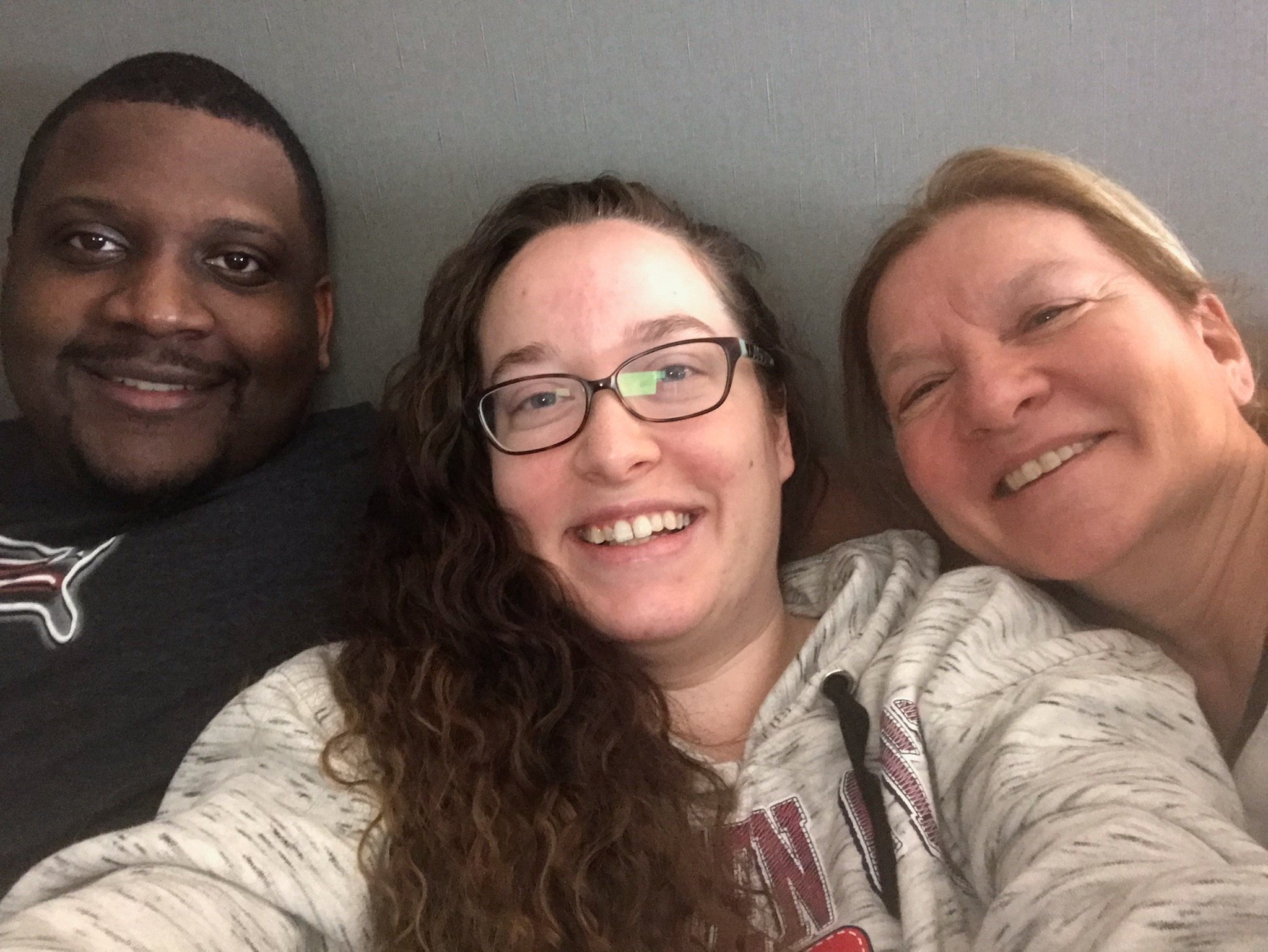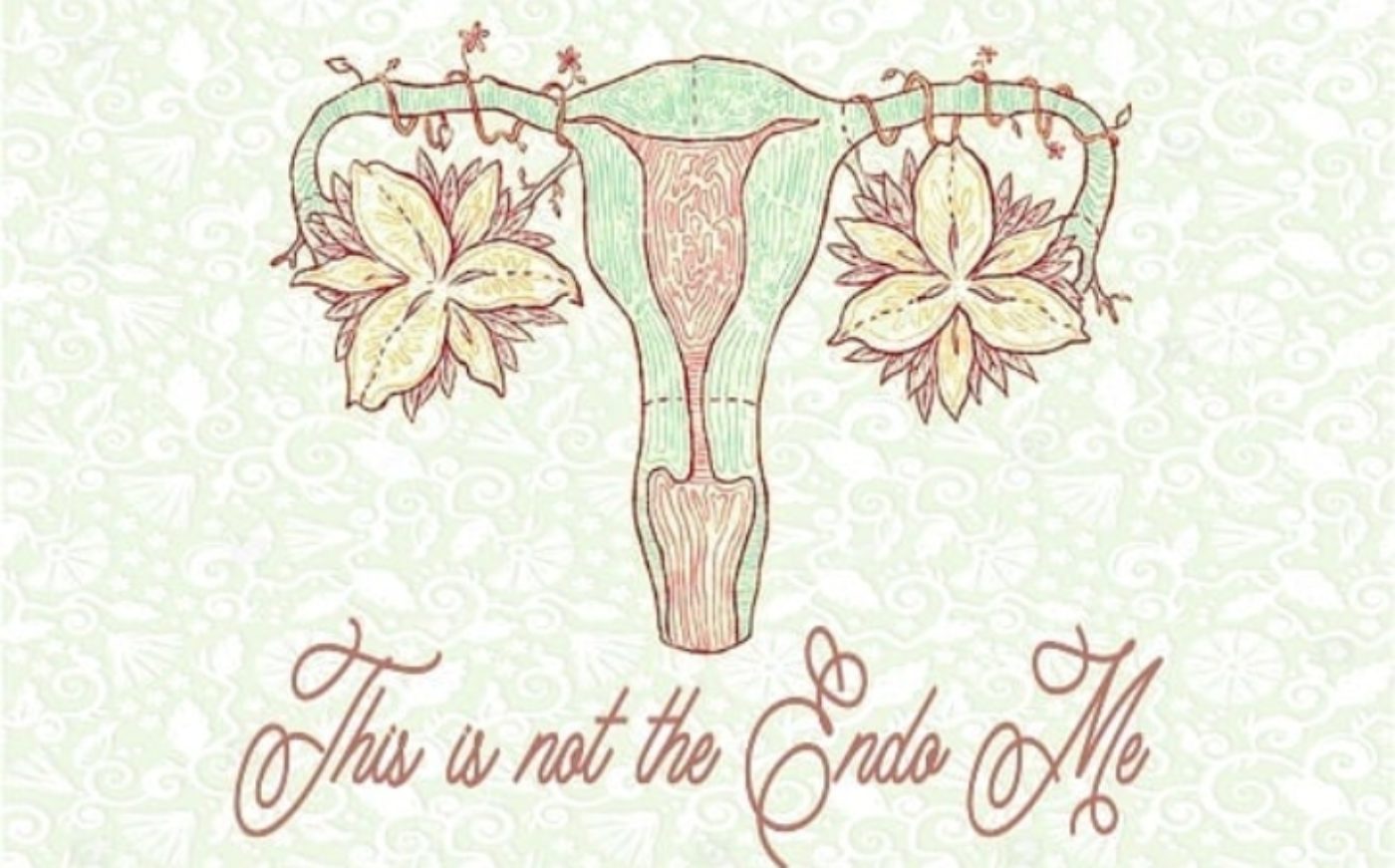
8 Weeks Out and Counting
There is a light at the end of the tunnel…

Night before surgery… 
6 weeks after surgery…
I am sorry for the delay in getting this post published. As I mentioned in the last blog post, I am officially 8 weeks post-surgery, and I am 1.5 weeks back to work. If I haven’t mentioned- I am a preschool teacher, and these kids are kicking my behind. I do love being back to work and doing what I love, but these weeks have had me TIRED. I am compiling a quick list of some things that I have noticed or encountered during my last 2 months of recovery. Enjoy!
Period Pain
Yes, my first period after surgery brought worse pain than I had ever felt! I would say it was a tie from when the nerve block wore off after my surgery and I couldn’t even cry I was in so much pain. However, “Aunt Flo” came only 12 days fresh out of surgery, so I think that is why experienced heightened amounts of pain. I also had my second period post-op, which was much less painful than the first. My second period was like what my periods felt like before surgery. I have read on many blogs and forums that after the 3rd period post surgery, the pain gets less and less. I am hoping this is true, and will probably check in around 6 months and write about how I’m feeling.
Weight changes
Weight loss should be a good thing, right?! Yes, actually…I’m not complaining a bit. But now I am definitely a believer in the endo belly/endo bloat theory. People who suffer with endometriosis can sometimes have a constant swelling and inflammation in their abdomen and pelvic region- I mean, I seriously have looked like I’m halfway through a pregnancy! After the initial swelling of surgery subsided (like day 1 or 2 post-op), my belly went back to its normal size. The first thing people have told me when seeing me after surgery is, “Wow, you lost a lot of weight!” When I was last checked at the doctor, I was 12 pounds down from before surgery, and that was only two weeks after surgery. I am trying to take advantage of the head start and keep it off!
Constipation/Hemorrhoids
Ugh- I said it. It’s a thing. At least in my experience. I probably tried to go off of my stool softener (Colace) too quickly, but I started getting scared that I wasn’t going to be able to poop on my own. Then, that’s exactly what happened because I wasn’t eating the right things. One of the worst things you can do to yourself post op after getting a bowel resection is allow yourself to become constipated. I was in pain, felt so much pressure to use the bathroom all day, and I couldn’t go. I was downright miserable. Then, because I pushed so hard I caused myself to get a hemorrhoid. Those coupled with constipation = 7th ring of hell! I quickly incorporated more fruit, veggies, and fiber into my diet and was back on track in no time.
Gas
Considering they have to fill your belly up with gas during surgery, gas can be an issue even weeks out of your surgery. I have to be careful to stay away from gas causing foods, not because you will flatulate more, but because I think gas is more likely to get trapped in the body and cause pains. I just ate chili for the first time post-op a few days ago, and I paid for it later in the night. Now, if I eat gas-inducing foods (like the brussel sprouts I had for dinner earlier), I just make sure to take a Gas-X right after, and that seems to help. I have noticed that I do belch more since surgery, but who really knows if it has anything to do with the surgery?
Fatigue/”Brain Fog”
Chronic fatigue is another symptom of endo, and one that I suffered from terribly before surgery. I still get tired at the end of my work day, and I still have to sleep at least 7 hours a night; but overall, my energy levels seem to be improving each week. I notice a lot more energy throughout the day while I’m with my students and I still have some leftover for my dog when I get home. I still need to veg out and rest, but it has definitely improved from getting home and just feeling exhausted. I have seen many people in forums and blogs explain this “brain fog” they experienced after surgery. I definitely had some moments while I was still taking pain medicine, but I cannot say that this has affected my brain function at all.
Depression/Anxiety
I had many healthcare professionals check in on me throughout my recovery. My regular doctor, my OBGYN, the surgeon, and even a nurse that works with my insurance company and consults with people after surgery. One of the main and first questions was always something along the lines of, “Are you feeling sad, lonely, depressed, or have no wanting to do things that make you happy?” My answer was always, “I have had my sad days, but I wouldn’t call it depressed.” That was the most true answer I could give. I had times that I would just cry because I couldn’t fight the urge anymore. I couldn’t really verbalize why I was sad, I just was. It was part anxiety (“Am I healing okay? Will this surgery help our chances of conceiving? What if we can’t conceive? What if the endo grows back really fast?”) and part depression (“I miss my students and co-workers. I feel so useless. I want to do more, but I can’t.) Overall, the sadness and worry never took over full days, they were just fleeting moments of vulnerability and I got through them.
While all of these things were in the forefront of my recovery, not every person or every body heals the same way. I am happy to be back at work and resuming my normal social life again. I do believe that going through pelvic floor physical therapy has also helped tremendously in the healing process. I may do a whole blog about that in the future when I am close to being finished; right now, I’m only a few sessions in. Thanks for reading! Feel free to comment, like, and share!


Comments
Why Colace and not Miralax?
I’m not sure. I left the hospital with a prescription for colace (so much cheaper than buying over the counter), so that’s what I took. It’s also what I took while in the hospital.
GI docs lean toward Miralax (generic is fine) for long term elimination assistance. That class of product is said to be the least detrimental to intestinal lining and function. Generics are relatively inexpensive OTC. On the advice of aGI doc, Sheila has been using it for years to counteract opioid induced constipation. It mixes with just about any liquid, the dosage is easily adjusted, and the results are dependable. Here is a comprehensive treatise on the subject: https://www.consumerreports.org/cro/2008/12/best-drugs-to-treat-constipation/index.htm
Awesome! Thank you for that info Warren!